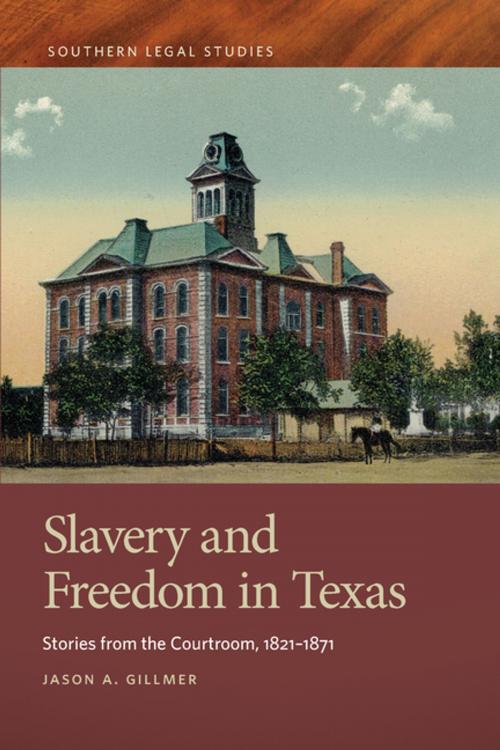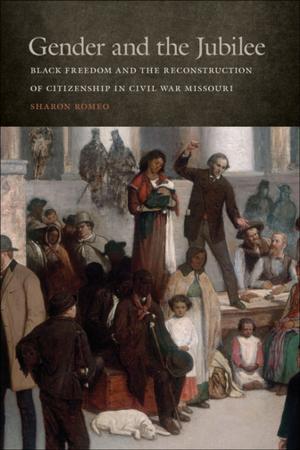Slavery and Freedom in Texas
Stories from the Courtroom, 1821–1871
Nonfiction, Reference & Language, Law, Legal History, Social & Cultural Studies, Social Science, Discrimination & Race Relations, History, Americas, United States| Author: | Jason A. Gillmer, David Wasserboehr | ISBN: | 9780820351322 |
| Publisher: | University of Georgia Press | Publication: | November 1, 2017 |
| Imprint: | University of Georgia Press | Language: | English |
| Author: | Jason A. Gillmer, David Wasserboehr |
| ISBN: | 9780820351322 |
| Publisher: | University of Georgia Press |
| Publication: | November 1, 2017 |
| Imprint: | University of Georgia Press |
| Language: | English |
In these absorbing accounts of five court cases, Jason A. Gillmer offers intimate glimpses into Texas society in the time of slavery. Each story unfolds along boundaries—between men and women, slave and free, black and white, rich and poor, old and young—as rigid social orders are upset in ways that drive people into the courtroom.
One case involves a settler in a rural county along the Colorado River, his thirty-year relationship with an enslaved woman, and the claims of their children as heirs. A case in East Texas arose after an owner refused to pay an overseer who had shot one of her slaves. Another case details how a free family of color carved out a life in the sparsely populated marshland of Southeast Texas, only to lose it all as waves of new settlers “civilized” the county. An enslaved woman in Galveston who was set free in her owner’s will—and who got an uncommon level of support from her attorneys—is the subject of another case. In a Central Texas community, as another case recounts, citizens forced a Choctaw native into court in an effort to gain freedom for his slave, a woman who easily “passed” as white.
The cases considered here include Gaines v. Thomas, Clark v. Honey, Brady v. Price, and Webster v. Heard. All of them pitted communal attitudes and values against the exigencies of daily life in an often harsh place. Here are real people in their own words, as gathered from trial records, various legal documents, and many other sources. People of many colors, from diverse backgrounds, weave their way in and out of the narratives. We come to know what mattered most to them—and where those personal concerns stood before the law.
In these absorbing accounts of five court cases, Jason A. Gillmer offers intimate glimpses into Texas society in the time of slavery. Each story unfolds along boundaries—between men and women, slave and free, black and white, rich and poor, old and young—as rigid social orders are upset in ways that drive people into the courtroom.
One case involves a settler in a rural county along the Colorado River, his thirty-year relationship with an enslaved woman, and the claims of their children as heirs. A case in East Texas arose after an owner refused to pay an overseer who had shot one of her slaves. Another case details how a free family of color carved out a life in the sparsely populated marshland of Southeast Texas, only to lose it all as waves of new settlers “civilized” the county. An enslaved woman in Galveston who was set free in her owner’s will—and who got an uncommon level of support from her attorneys—is the subject of another case. In a Central Texas community, as another case recounts, citizens forced a Choctaw native into court in an effort to gain freedom for his slave, a woman who easily “passed” as white.
The cases considered here include Gaines v. Thomas, Clark v. Honey, Brady v. Price, and Webster v. Heard. All of them pitted communal attitudes and values against the exigencies of daily life in an often harsh place. Here are real people in their own words, as gathered from trial records, various legal documents, and many other sources. People of many colors, from diverse backgrounds, weave their way in and out of the narratives. We come to know what mattered most to them—and where those personal concerns stood before the law.















